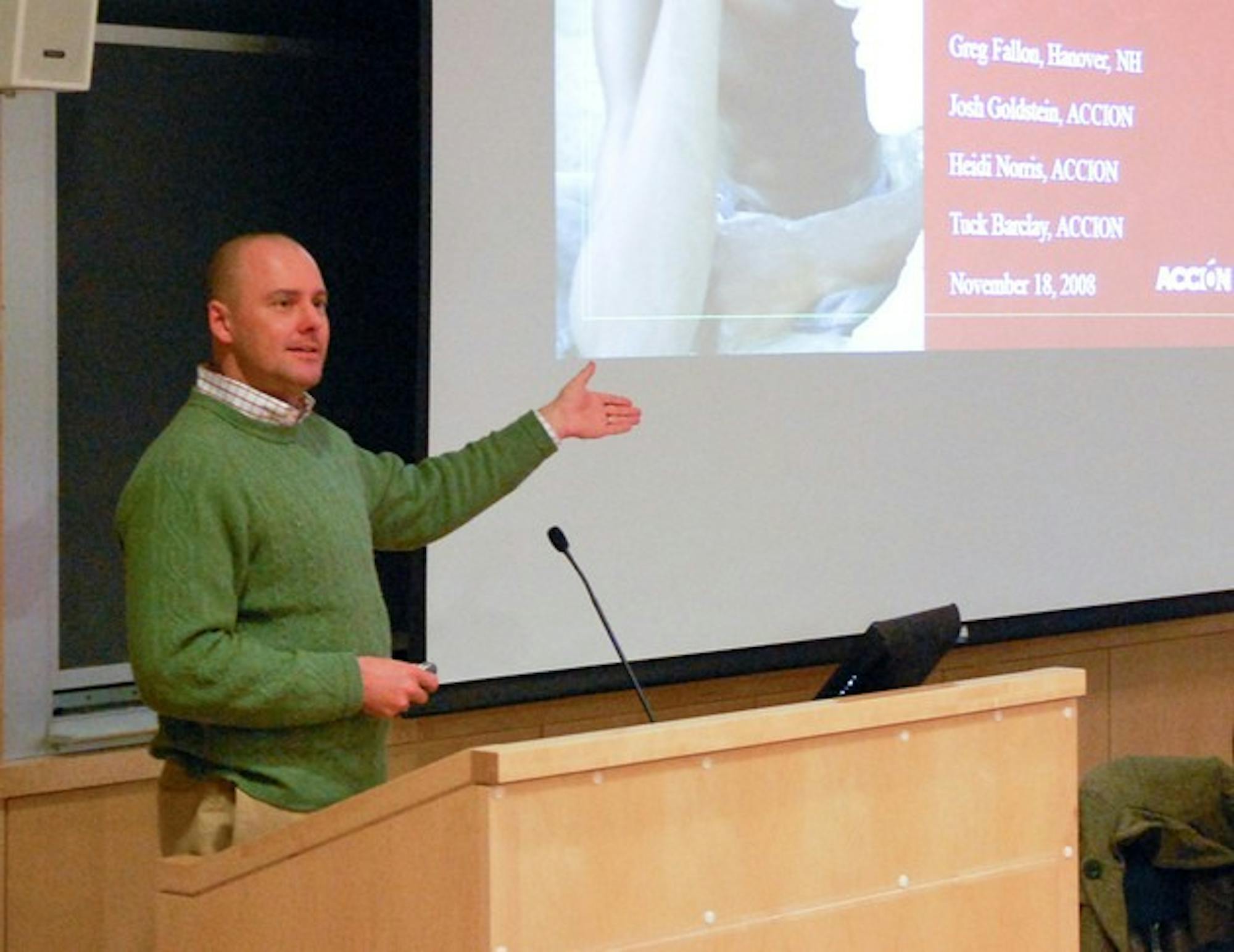The panel featured representatives from ACCION, a non-profit microfinance firm that specializes in the developing world, and Grameen America, a microfinance company that aims to alleviate poverty in the United States. Speakers included Josh Goldstein, a director at ACCION's Center for Financial Inclusion, Tanya Palit, a project manager at Grameen America, and Greg Fallon, a Hanover-based volunteer for ACCION.
The aim of microfinance firms, according to Palit, is to eliminate poverty by promoting entrepreneurship among the working poor, with a particular emphasis on women. Microfinance lenders achieve this by extending small loans to individuals or small groups to help them start a business.
Palit added that Grameen's founder, Muhammad Yunus, won the Nobel Peace Prize in 2006 for his work in alleviating poverty. Grameen America is an offshoot of Grameen Bank, a microfinance bank in Bangladesh.
All members of the panel agreed that the goal of microfinance should be to help the poor, but they debated whether allowing lenders to make a profit is a help or a hinderance in achieving this goal.
Goldstein said that the non-profit nature of microfinance firms can constrain the ability to serve their clients.
"Capacity to grow was very much inhibited by lack of capital," he said of non-profit microlenders.
Goldstein cited the bank Compartamos, which went public earlier this year, as a positive example of for-profit microlending.
"We think the [Initial Public Offering] demonstrated that it does work," he said. "They will help more people and more efficiently."
Fallon echoed Goldstein's argument.
"We need to innovate, and the only way we can innovate is with capital investment," he said.
Conversely, Palit warned that for-profit microlenders could begin to care more about turning a profit than the people they originally set out to help.
"Organizations will have to start answering to investors," she said.
She also noted that Yunus has spoken strongly against the commercialization of microlending firms.
"Yunus believes that making a profit off the poor is inefficient and immoral," she said.
Goldstein acknowledged that commercialization could be dangerous, but said it was not necessarily a bad thing.
"I don't think profit should be a dirty word," he said, but later added, "it could lead to some ugly things at the same time."
The panelists agreed that the success of microfinance lending relies in sustainable investment and the ability of organizations to be self-sufficient.
The future of micro-finance lies in expansion to new areas of the world, Fallon said, including Sub-Saharan Africa, China, and the United States.
All the participants stressed the complexity of the future challenges to the microfinance field and the importance of student involvement.
"Students are going to be a really important resource for innovation," Palit said.




